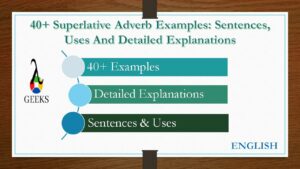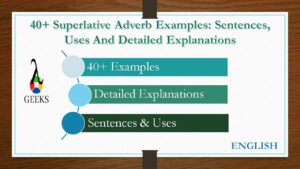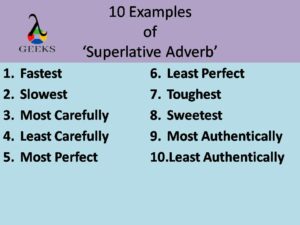In this article, at preposition examples and uses in sentences with explanations will enable you to understand where you should use preposition ‘At’ and where you should not use the same.
Preposition ‘at’ is to be used before noun, noun phrase or pronoun to point out specific location, place , time or activity. The ‘at’ preposition is mainly used to referred particular place and time.
- Let’s meet tomorrow at 10 a.m. for dance class.
- My dance class will be held tomorrow at 4 p.m in the evening.
- Our school bus always comes at 6 a.m. in the morning.
- I have to catch the train which will leave the station at sharp 11.10 p.m.
- My brother, Pijush wakes up at eight o’clock in the morning.
- Don’t search here and there. You will always find me at my home in the evening.
- I like to reach on time at my office.
- My dream is to take a flat at the top floor of the building ‘Eagle House’.
- Try to find the word ‘inquisition’ at the bottom of the page number 8 of your English book.
- I miss my days of fun and entertainment at my university, ‘Vidyasagar University’.
- There is a always chance of accident at the corner of the busy road near our house.
- You should meet with me at the bus stop near my school.
- Go and stand at the door.
- The shoe shop is at the end of the street.
- The pond is at the middle of the locality.
- The banyan tree is situated at the center of our society.
- My plane stopped at Kolkata and then again flew for Dubai.
- The Hatia train had a stoppage at Mecheda railway station.
- The train stopped at Howrah station to change the engine.
- When will you arrive at office for the meeting?
- The bus is going to leave at 9 o’clock in the morning.
- I am going to leave for office at 10 a.m. tomorrow.
- All of them laughed at my joke.
- Don’t laugh at the problems of others.
- Pijush is good at calligraphy.
- Sandip is looking continuously at the sunset.
- Renu is very good at cooking meat.
- They laughed at my painting.
- We went to see a football match at the Sershah Stadium.
- There is a birthday party at the club house of our locality.
- My examination is going to start at 11 a.m. tomorrow.
- I should hurry. Sandip is waiting at the bus stop.
- The grade meter of my grade card is at 80%.
- Pijush is at 90% marks while her sister scored more than that.
- Renu’s wedding was held at ‘Mangolik’ marriage hall.
- Don’t dare to shout at me.
- Rich people should not yell at poor people.
- The case is going to be held at judge’s court.
- I stood at the podium to accept a round of applause.
- Pijush will go to sleep at ten o’clock in the evening.
- I didn’t know anyone at the marriage party.
- The egg roll restaurant is placed at the end of the next street.
- I am very bad at recognizing direction after boarding on plane.
- Sandip is looking continuously at the sunset.
- I was always bad at outdoor games.
- There will be a introduction at the opening of the power point presentation.
- Sandip and Pijush always play chess at their study table.
- You will get a duplicate key at the reception desk of the hotel.
- At the age of eighteen, every kids thinks that they can achieve anything.
- At 12 noon, we feel like we must not go outside in this summer season.
Where not to use preposition at –
The preposition ‘at’ is always in use for specific place, location, time, activity. Here the term ‘specific’ is important. We can not use the preposition ‘at’ before a noun, pronoun or noun phrase where the place/location, time or activity is not particularly defined.
When to use preposition at –
We use the preposition ‘at’ mainly to refer particular location/place and time. Sometime the preposition ‘at’ is in use to refer particular activity also.
When to not use preposition at –
We must keep in mind that a preposition always placed before a noun, pronoun or noun phrase. Thus, the preposition ‘at’ should also follow the same rule. It must be placed before a specific noun, pronoun or noun phrase related to time, location or activity.
How to use preposition at –
- We must use the preposition ‘at’ to refer specific point of time, specific point of age or some specific periods of time.
- The ‘at’preposition can also be used to refer specific location, specific place of specific position.
- Sometime we use ‘at’ to refer particular single activity or specific group activity.
At Preposition Examples Sentences-
Let’s look at explanations of sentences framed with superlative adverbs.
1. Let’s meet tomorrow at 10 a.m. for dance class.
Explanation – Here the preposition ‘at’ is in use to point out a particular time of the day.
2. My dance class will be held tomorrow at 4 p.m. in the evening.
Explanation – Here the preposition ‘at’ is in use to point out a particular time of tomorrow.
3. Our school bus always comes at 6 a.m. in the morning.
Explanation – Here the preposition ‘at’ is in use to point out a particular time in the morning.
4. I have to catch the train which will leave the station at sharp 11.10 p.m.
Explanation – Here the preposition ‘at’ is in use to point out a particular time in the night.
5. My brother, Pijush wakes up at eight o’clock in the morning.
Explanation – Here the preposition ‘at’ is in use to point out a particular time in the morning.
6. Don’t search here and there. You will always find me at my home in the evening.
Explanation – Here the preposition ‘at’ is in use to point out a particular location to search for.
7. I like to reach on time at my office.
Explanation– Here the preposition ‘at’ is in use to point out a particular location to reach.
8. My dream is to take a flat at the top floor of the building ‘Eagle House’.
Explanation – Here the preposition ‘at’ is in use to point out a particular place to occupy.
9. Try to find the word ‘inquisition’ at the bottom of the page number 8 of your English book.
Explanation – Here the preposition ‘at’ is in use to point out a particular area of the book.
10. I miss my days of fun and entertainment at my university, ‘Vidyasagar University’.
Explanation – Here the preposition ‘at’ is in use to point out a particular place where the speaker had fun.
11. There is always chance of accident at the corner of the busy road near our house.
Explanation – Here the preposition ‘at’ is in use to point out a particular area which is accident prone.
12. You should meet with me at the bus stop near my school.
Explanation – Here the preposition ‘at’ is in use to point out a particular place to meet.
13. Go and stand at the door.
Explanation – Here the preposition ‘at’ is in use to point out a particular place to stand.
14. The shoe shop is at the end of the street.
Explanation – Here the preposition ‘at’ is in use to point out a particular place where the shoe shop is placed.
15. The pond is at the middle of the locality.
Explanation – Here the preposition ‘at’ is in use to point out a particular place where the pond is situated.
16. The banyan tree is situated at the centre of our society.
Explanation – Here the preposition ‘at’ is in use to point out a particular place where the banyan tree is placed.
17. My plane stopped at Kolkata and then again flew for Dubai.
Explanation – Here the preposition ‘at’ is in use to point out a particular station where the plane had a break.
18. The Hatia train had a stoppage at Mecheda railway station.
Explanation – Here the preposition ‘at’ is in use to point out a particular railway station.
19. The train stopped at Howrah station to change the engine.
Explanation – Here the preposition ‘at’ is in use to point out a particular railway station.
20. When will you arrive at office for the meeting?
Explanation – Here the preposition ‘at’ is in use to point out a particular place.
21. The bus is going to leave at 9 o’clock in the morning.
Explanation – Here the preposition ‘at’ is in use to point out a particular time when the bus is going to leave.
22. I am going to leave for office at 10 a.m. tomorrow.
Explanation – Here the preposition ‘at’ is in use to point out a particular time.
23. All of them laughed at my joke.
Explanation – Here the preposition ‘at’ is in use to point out a particular activity to laugh.
24. Don’t laugh at the problems of others.
Explanation – Here the preposition ‘at’ is in use to point out a particular activity.
25. Pijush is good at calligraphy.
Explanation – Here the preposition ‘at’ is in use to point out a particular activity.
26. Sandip is looking continuously at the sunset.
Explanation – Here the preposition ‘at’ is in use to point out a particular activity.
27. Renu is very good at cooking meat.
Explanation – Here the preposition ‘at’ is in use to point out a particular activity.
28. They laughed at my painting.
Explanation – Here the preposition ‘at’ is in use to point out a particular activity.
29. We went to see a football match at the Sershah Stadium.
Explanation – Here the preposition ‘at’ is in use to point out a particular place where the football match was held.
30. There is a birthday party at the club house of our locality.
Explanation – Here the preposition ‘at’ is in use to point out a particular place.
31. My examination is going to start at 11 a.m. tomorrow.
Explanation – Here the preposition ‘at’ is in use to point out a particular time when the examination is going to start.
32. I should hurry. Sandip is waiting at the bus stop.
Explanation – Here the preposition ‘at’ is in use to point out a particular place to meet.
33. The grade meter of my grade card is at 80%.
Explanation – Here the preposition ‘at’ is in use to point out a particular position.
34. Pijush is at 90% marks while her sister scored more than that.
Explanation – Here the preposition ‘at’ is in use to point out a particular score / position.
35. Renu’s wedding was held at ‘Mangolik’ marriage hall.
Explanation – Here the preposition ‘at’ is in use to point out a particular place where the marriage of Renu was held.
36. Don’t dare to shout at me.
Explanation – Here the preposition ‘at’ is in use to point out a particular direction towards the speaker.
37. Rich people should not yell at poor people.
Explanation – Here the preposition ‘at’ is in use to point out a particular activity.
38. The case is going to be held at judge’s court.
Explanation – Here the preposition ‘at’ is in use to point out a particular location where the case is going to be held.
39. I stood at the podium to accept a round of applause.
Explanation – Here the preposition ‘at’ is in use to point out a particular place where the speaker stood.
40. Pijush will go to sleep at ten o’clock in the evening.
Explanation – Here the preposition ‘at’ is in use to point out a particular time when Pijush will go to sleep.
41. I didn’t know anyone at the marriage party.
Explanation – Here the preposition ‘at’ is in use to point out a particular place.
42. The egg roll restaurant is placed at the end of the next street.
Explanation – Here the preposition ‘at’ is in use to point out a particular place where the egg roll restaurant is placed.
43. I am very bad at recognizing direction after boarding on plane.
Explanation – Here the preposition ‘at’ is in use to point out a particular activity.
44. Sandip is looking continuously at the sunset.
Explanation – Here the preposition ‘at’ is in use to point out a particular activity.
45. I was always bad at outdoor games.
Explanation – Here the preposition ‘at’ is in use to point out a particular activity.
46. There will be a introduction at the opening of the power point presentation.
Explanation – Here the preposition ‘at’ is in use to point out a particular activity.
47. Sandip and Pijush always play chess at their study table.
Explanation – Here the preposition ‘at’ is in use to point out a particular place where Sandip and Pijush play chess.
48. You will get a duplicate key at the reception desk of the hotel.
Explanation – Here the preposition ‘at’ is in use to point out a particular location where the duplicate key can be found.
49. At the age of eighteen, every kid thinks that they can achieve anything.
Explanation – Here the preposition ‘at’ is in use to point out a particular time of age.
50. 12 noon in this hot summer season, we feel that we must not go outside.
Explanation – Here the preposition ‘at’ is in use to point out a particular time.
At Preposition Examples:When,Where,How,Why To Use And Not Use ( Related FAQ)
Preposition of Place ‘at’ examples –
- I don’t like to wake up at 6 a.m. in the morning.
- I will go for evening walk at five o’clock in the evening.
Preposition of Time ‘at’ examples –
- I don’t like to wake up at 6 a.m. in the morning.
- I will go for evening walk at five o’clock in the evening.
Read More: 30+ Frequency Adverbs Examples: Sentences, Uses And Detailed Explanations


